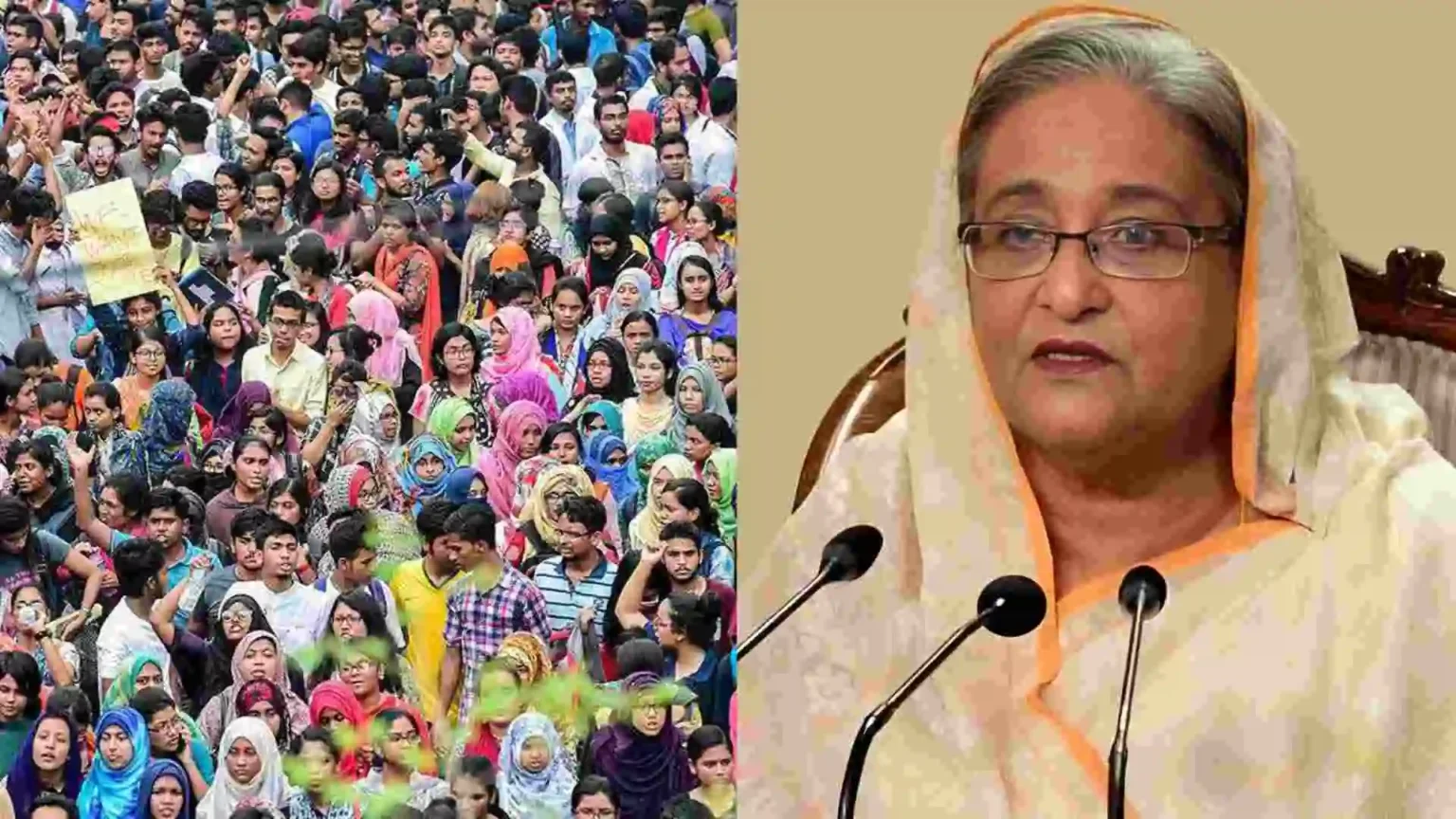Bangladeshi Prime Minister Sheikh Hasina on Monday stepped down from her position, confirmed country’s army chief General Waker-Uz-Zaman, prompted by overwhelming protests over quota system.
Speaking during a presser after Hasina, 76, fled the country, General Zaman said the army will meet Bangladesh President Mohammed Shahabuddin to deliberate on formation of interim government.
Media reports said she had flown in a military helicopter with her sister and was headed to the eastern Indian state of West Bengal just across the border. Another report said she was headed to India’s northeastern state of Tripura.
Reuters could not immediately verify the reports.
Television visuals showed thousands of people pouring into the streets of the capital Dhaka in jubilation and shouting slogans. Thousands also stormed Hasina’s official residence ‘Ganabhaban’, shouting slogans, pumping fists and showing victory signs.
Television visuals showed crowds in the drawing rooms of the residence, and some people could be seen carrying away televisions, chairs and tables from what was one of the most protected buildings in the country.
“She has fled the country, fled the country,” some shouted.
Protesters in Dhaka also climbed atop a large statue of independence leader Sheikh Mujibur Rahman, Hasina’s father, and began chiselling away at the head with an axe, the visuals showed.
Student activists had called for a march to the capital Dhaka on Monday in defiance of a nationwide curfew to press Hasina to resign, a day after deadly clashes across the country killed nearly 100 people. About 150 people were killed in protests last month.
On Monday, at least six people were killed in clashes between police and protesters in the Jatrabari and Dhaka Medical College areas on Monday, the Daily Star newspaper reported. Reuters could not immediately verify the report.
Bangladesh has been engulfed by protests and violence that began last month after student groups demanded scrapping of a controversial quota system in government jobs.
That escalated into a campaign to seek the ouster of Hasina, who won a fourth straight term in January in an election boycotted by the opposition.




